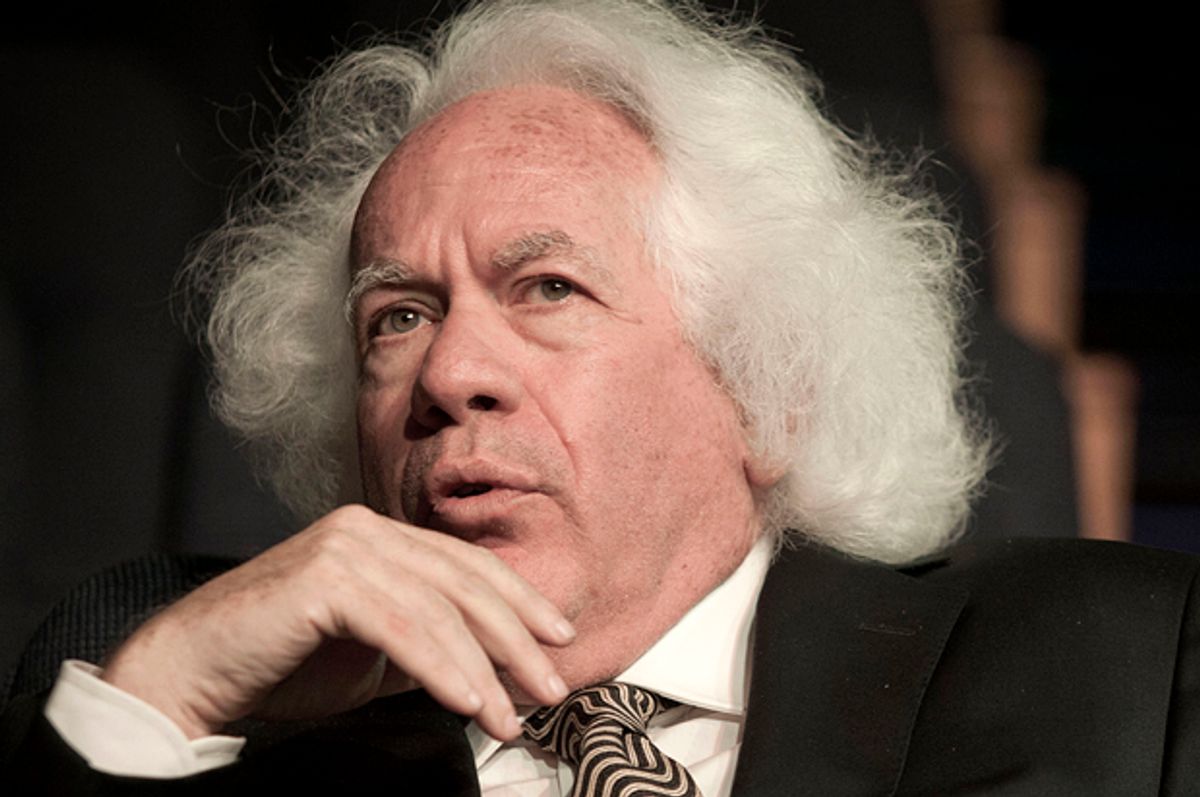“When, in the course of human events, mankind is free but everywhere he is in chains, let us pause for a moment to think about the fact that the Internet has destroyed human civilization. And by human civilization, I mean writers; and by writers, I mean ‘writers I know,’ and by writers I know, I mean ‘writers I know who I have slept with,’ and by writers I have slept with, I mean, ‘writers who I want to sleep with.’ I believe it was Henry James (or, as he was known in France, Henri Jacques) who wrote, ‘without the humanities, the Princess Cassimassima would have suffered from an excessively monochromatic pulchitrude.’ Where have all the essays gone? Long time passing.”
I put down my quill, which I always use when writing criticism of importance, lean back in my chair, and sigh. This, this is a piece of writing that matters, unlike all the other pieces of writing that I’ve read recently, none of which count, save Arnold Lubinsky’s impassioned defense of Issac Babel’s letters in the New York Review of Books, which, despite its lack of intellectual rigor, still manages to grasp at an essential truth. But everything else I’ve read in the 16 months since I was unceremoniously dismissed from my contributing editorships at three major publications in favor of younger, less intelligent replacements has, frankly, sucked. Here I am, for decades now The Greatest Living American Writer, and I can’t buy myself a gig. Prose is dead, America, deader.
That’s why I write with a pen. For a while, I tried a laptop, but found myself distracted, endlessly, by the bleeps and bloops and naked horny Asian sluts. Then I went back to a desktop, but still the Internet called out to me with its inchoate rage and endless lists and hot teenage schoolgirls sticking rulers up their bums. So back in metaphorical time I went to an electric typewriter, which shorted out on me, incompetently. Then my tie got caught in the keys of a manual typewriter and I had to call the paramedics. So it is pen and ink for me, just like my heroes Samuel Pepys and Demosthenes, men of flaxen hair who fought nobly against the ignorance of their age. And what thanks do I get? Bupkus.
Outside, I hear an eagle cry from the summit of Mount Winchester, the lonely New England peak that frames my fire-lit home, purchased with the million-dollar advance I received from the sale of my book "The Closing of the American Crotch," which, even in 1983, presaged an era where the humanities would wither and die and writers younger and more stylish than I would capture the public’s imagination with their inferior thoughts. Oh, injustice! Oh, ingratitude!
“Roger!” I cry.
My beleaguered manservant Roger pokes his head into my turret-study. It is as though he’s been waiting for me to call, which he probably has. He has nothing else to do, after all.
“Sir?” he says.
I tear my sheet of writing from my typewriter and hand it to him.
“Read this,” I say. “Is it an appropriate response to the injustices recently visited upon my person?”
He reads it, briefly.
“Absolutely, sir,” he says. “It is brilliant. Almost incredibly so.”
“That’s what I thought,” I say.
Everything I’ve written since 1971 has been brilliant. Roger agrees. And he is right. This is why he continues to draw a salary. And breath.
“Bring me some tea, when you get a chance,” I say.
“I have already taken the liberty,” he says. “It’s brewing in the kitchen and I’ll bring it right up.”
“Good man,” I say.
Roger departs, leaving me alone with my thoughts and my pen.
“Aside from life and death and birth and penis size and witchcraft and the cinema and whether or not the Red Hulk is more powerful than the Green Hulk,” I write, “there is no more pressing task for American intellectuals and writers today than to think very hard about how to prevent other, less-qualified writers (especially women writers) from taking our place at the top of the pyramid. After all, what are standards and qualifications good for if they do not discriminate among the virtues?”
Oh, that paragraph is good. I reach into my pants and fap myself briefly before continuing. Nothing makes me hornier than having world-changing ideas about the life of the mind.
“The persistence of humanism over the centuries,” I write, “shows that, if nothing else, humanism is persistent. We must fight the mechanized androids from the future that are trying to take away our writing jobs with their glib keyword searches and vague intercontextuality. Indeed, it is incumbent upon us not to be recumbent. We must seek to sink the hardness of our minds into the soft thighs of resistance, and remember that we are always superior to technology, that shibboleth that will destroy us all.”
“Roger!” I shout. “Where’s my fucking tea?”
Roger enters my study, tray of Lapsang Souchong in hand. Outside, a light snow begins to fall. But though the ground is wintry, my brain is on fire with righteousness. As William James (or, as he was known in France, le nouveau Western) once said, “The life of the mind shall always triumph over the mindless life, assuming we don’t run out of sherry.”
“Read this,” I say.
My loyal manservant leans over my shoulder and examines my typewritten prose.
“Truly, sir,” he says. “You are the best.”

Shares